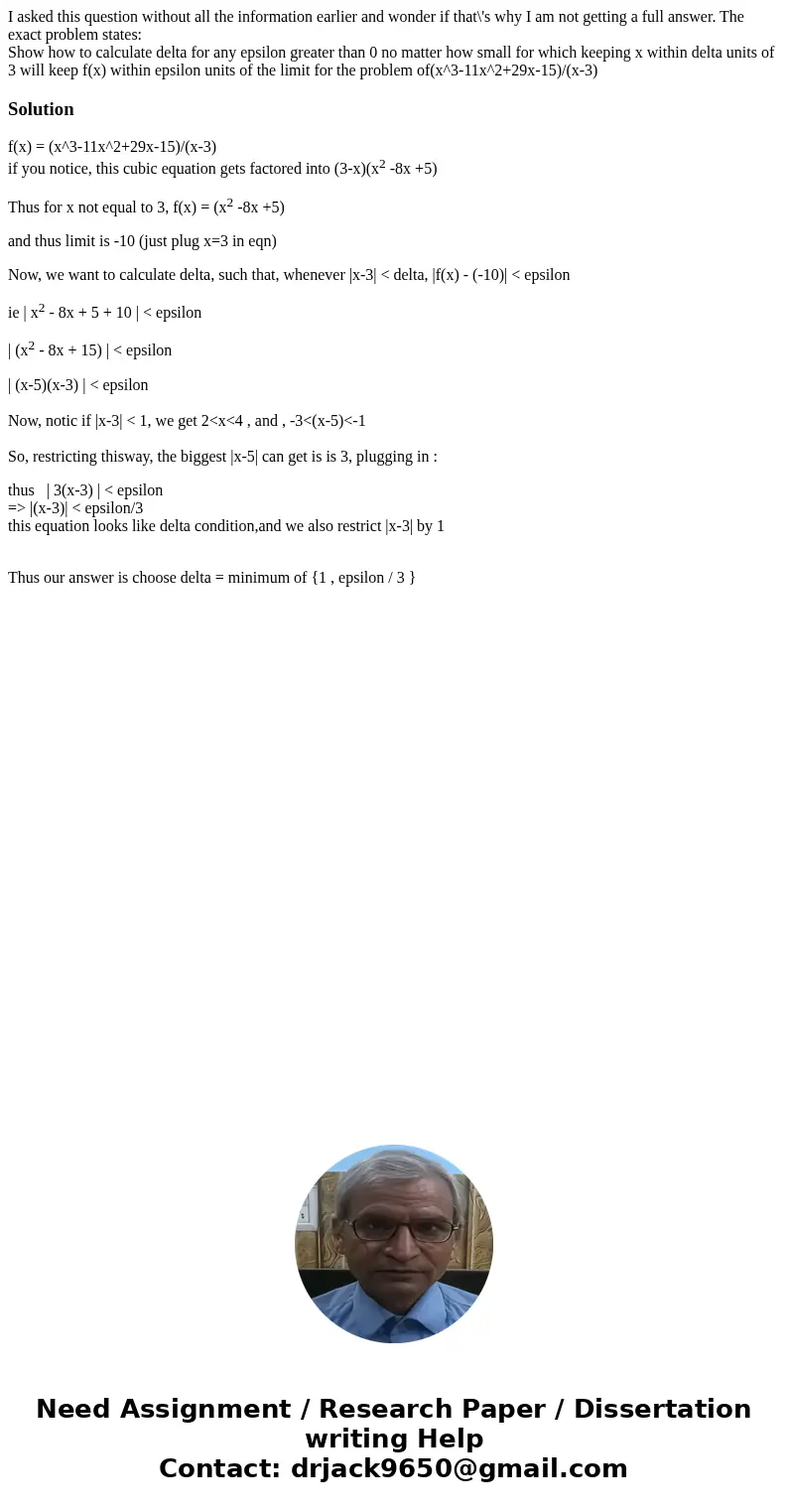I asked this question without all the information earlier an
I asked this question without all the information earlier and wonder if that\'s why I am not getting a full answer. The exact problem states:
Show how to calculate delta for any epsilon greater than 0 no matter how small for which keeping x within delta units of 3 will keep f(x) within epsilon units of the limit for the problem of(x^3-11x^2+29x-15)/(x-3)
Show how to calculate delta for any epsilon greater than 0 no matter how small for which keeping x within delta units of 3 will keep f(x) within epsilon units of the limit for the problem of(x^3-11x^2+29x-15)/(x-3)
Solution
f(x) = (x^3-11x^2+29x-15)/(x-3)
if you notice, this cubic equation gets factored into (3-x)(x2 -8x +5)
Thus for x not equal to 3, f(x) = (x2 -8x +5)
and thus limit is -10 (just plug x=3 in eqn)
Now, we want to calculate delta, such that, whenever |x-3| < delta, |f(x) - (-10)| < epsilon
ie | x2 - 8x + 5 + 10 | < epsilon
| (x2 - 8x + 15) | < epsilon
| (x-5)(x-3) | < epsilon
Now, notic if |x-3| < 1, we get 2<x<4 , and , -3<(x-5)<-1
So, restricting thisway, the biggest |x-5| can get is is 3, plugging in :
thus | 3(x-3) | < epsilon
=> |(x-3)| < epsilon/3
this equation looks like delta condition,and we also restrict |x-3| by 1
Thus our answer is choose delta = minimum of {1 , epsilon / 3 }

 Homework Sourse
Homework Sourse